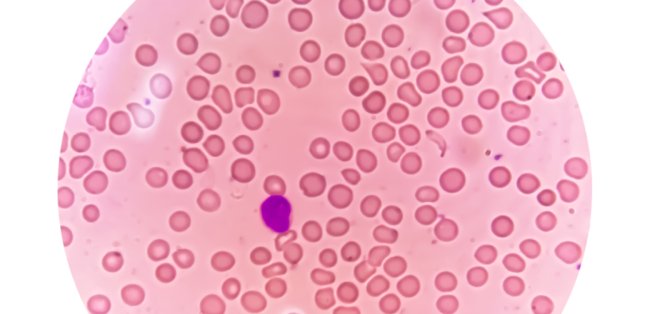Lymphocytes in a complete blood count (LYMPH)
Lymphocytes play a key role in maintaining the immune system and protecting the body from infections and diseases. At the K+31 clinic, our patients have access to the best diagnostic methods, an individual treatment plan, and the most advanced equipment.

specialists

equipment

treatment

Lymphocytosis – an increase in LYMPH – is characteristic of:
- Most viral infections (flu, acute respiratory viral infections, herpes, hepatitis, measles, rubella, mononucleosis, chickenpox)
- Some bacterial diseases (whooping cough, tuberculosis, syphilis)
- Leishmaniasis, toxoplasmosis
- Allergic diseases during periods of exacerbation
- Lymphocytic leukemia

Low quantity is observed in:
- Suppression of the immune system by immunosuppressants, glucocorticoids, radiation therapy and chemotherapy
- Immunodeficiency
- Lymphoma, lymphosarcoma, some leukemias
- Bone marrow depletion and anemia associated with deficiency of iron, vitamin B12 and folate
Even if there are no symptoms of the above conditions, it is necessary to examine lymphocytes in a general blood test at least once a year for preventive purposes to exclude diseases that do not have obvious manifestations over a long period.

This award is given to clinics with the highest ratings according to user ratings, a large number of requests from this site, and in the absence of critical violations.

This award is given to clinics with the highest ratings according to user ratings. It means that the place is known, loved, and definitely worth visiting.

The ProDoctors portal collected 500 thousand reviews, compiled a rating of doctors based on them and awarded the best. We are proud that our doctors are among those awarded.
Make an appointment at a convenient time on the nearest date
Price
















The role of lymphocytes in the body
When studying the leukocyte formula, the relative number of lymphocytes is determined without fail. Their norm in a healthy person is 19-37%. This type of leukocyte is responsible for the full functioning of cellular (T-lymphocytes), humoral (B-lymphocytes) immunity, as well as for the destruction of atypical cells (NK-lymphocytes).
Thanks to these formed elements, the body realizes immunological memory, on the basis of which the vaccination system is built, and the immune system itself eliminates infections more quickly and easily, contact with which has already occurred in the past. It is B-lymphocytes that are responsible for the production of circulating antibodies that recognize the introduction of foreign antigens into the body and activate subsequent immune links aimed at eliminating them.